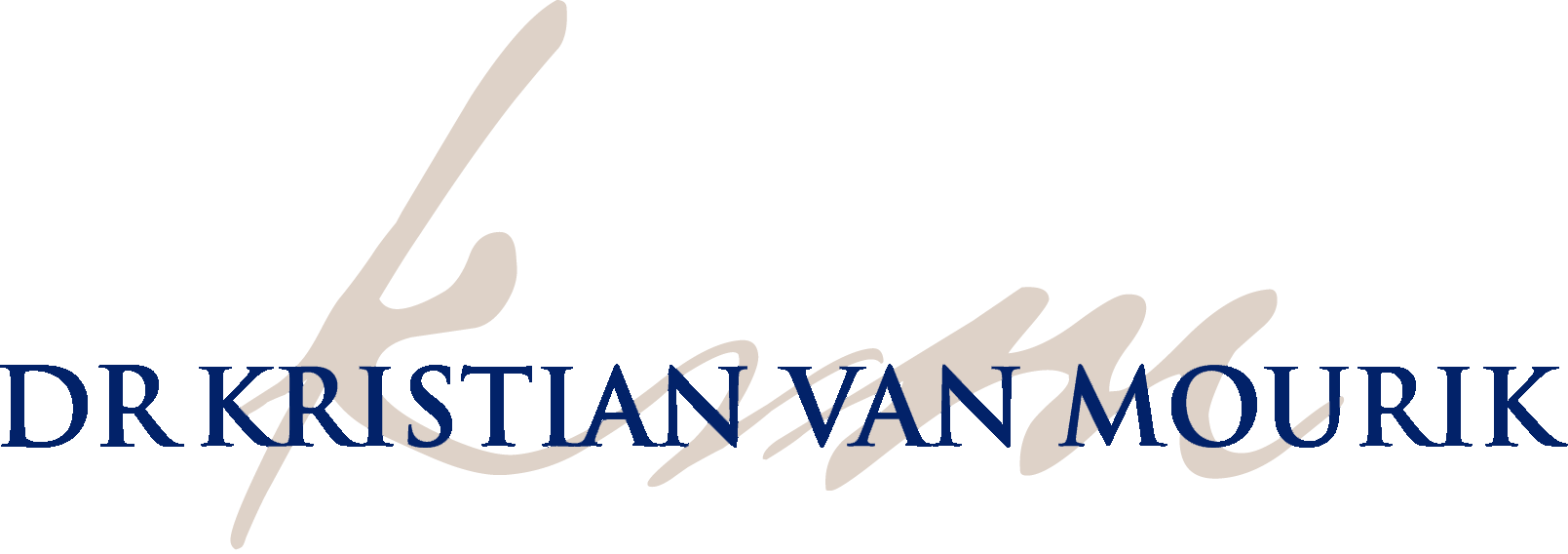Gentle, carefully planned care from an Oral & Maxillofacial Surgeon Sydney
Wisdom Tooth Removal Sydney
Wisdom tooth extractions in Sydney performed by a qualified Oral & Maxillofacial Surgeon. Treatment is carefully planned to reduce risks and support recovery.
Specialist Oral Surgery practice with over 18 years of experience.
Experience the pinnacle of expertise and the smoothest recoveries in Wisdom Tooth Surgery Sydney.
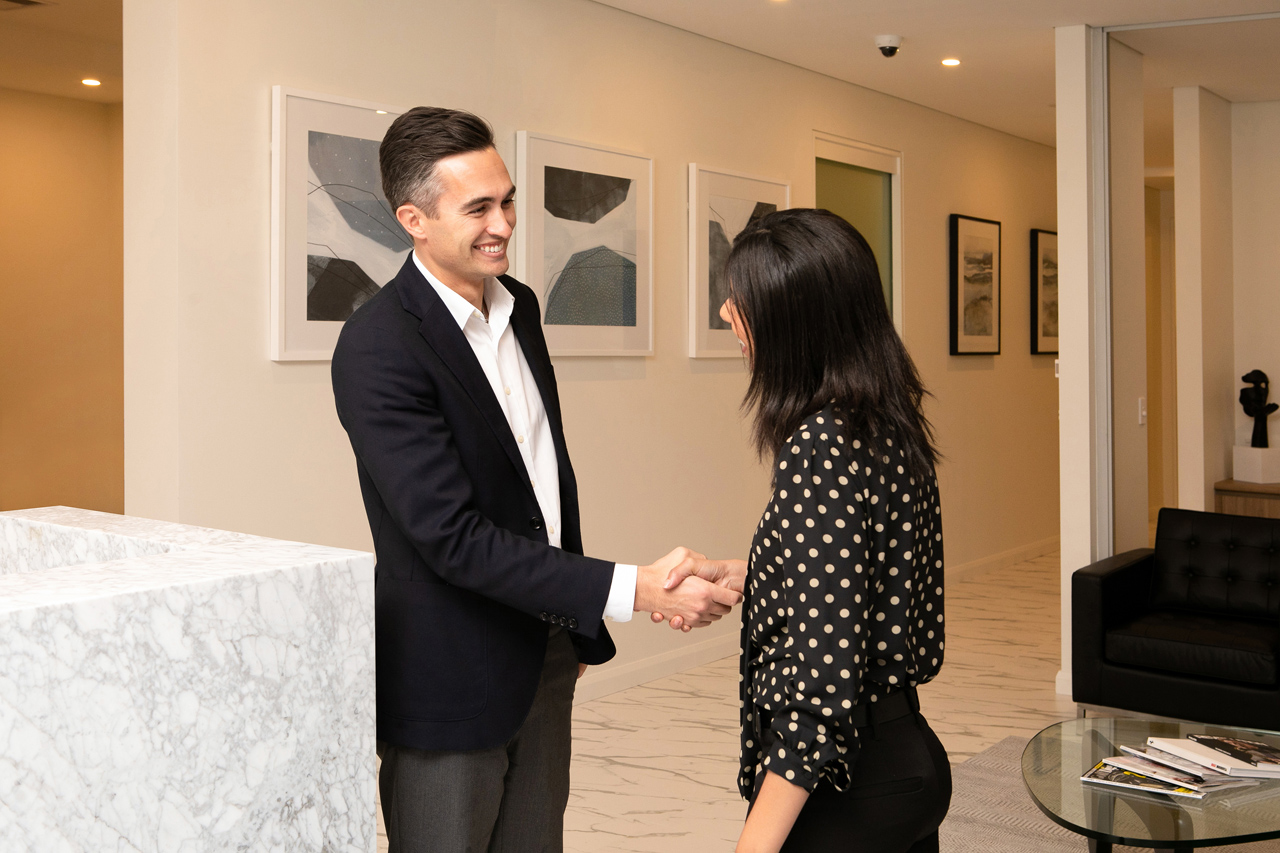

Our practice has been providing Wisdom Teeth Removal in Sydney, for over a decade.
With two established clinics we focus on
- Patient centered care with careful planning.
- Clear communication.
- Highest level of surgical proficiency.
Symptoms and Problems Caused by Impacted Wisdom Teeth
Impacted wisdom teeth can create a range of oral health problems. In 90% of people they do not have enough room to grow properly, which can lead to:
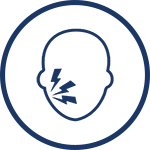
Pain and pressure
Wisdom teeth that press against neighbouring molars may cause persistent pain. This discomfort can sometimes radiate to the ear, jaw, or throat.
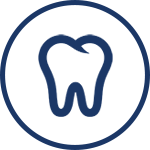
Tooth decay
Food and bacteria can become trapped between an impacted wisdom tooth and the tooth beside it. This increases the risk of cavities in both teeth.
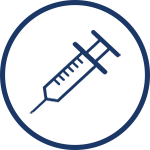
Infection
Gums around a partially erupted tooth can be hard to clean, making them prone to swelling or infection. This may lead to bad breath, an unpleasant taste, and in severe cases, infections that spread to the throat or chest, causing difficulty with swallowing or breathing.
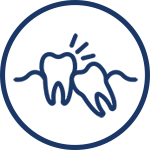
Crowding and damage to other teeth
Pressure from an impacted tooth can shift nearby teeth, affecting bite alignment or damaging previous orthodontic work.
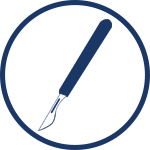
Cysts and bone changes
Fluid-filled cysts can form around unerupted teeth. These may affect nearby bone, teeth, or gum tissue if not treated.

Ulcers
When a wisdom tooth grows at an angle, it can rub against the inside of the cheek, leading to painful ulcers.
Why is Wisdom Tooth Extraction Necessary?
Around 90% of people have wisdom teeth that don’t have enough space to come through properly. When this happens, they can become trapped in the jawbone or stay partly covered by the gum. These impacted wisdom teeth may:
- Press against neighbouring teeth, sometimes damaging them and leading to root canal treatment
- Cause pain and discomfort
- Trap food and bacteria, leading to infection and decay in both the wisdom teeth and nearby molars
- Severe infections from wisdom teeth can spread to deeper tissues in the neck, potentially leading to Ludwig’s Angina, a serious, life-threatening condition that requires urgent medical attention.
- Lead to cyst formation
- Erode areas of the jawbone
- Rub against the inside of the cheek, causing ulcers
- Cause crowding, affecting the results of orthodontic treatment
Extraction is recommended once wisdom teeth start to cause symptoms.
When you’re young, your tooth roots aren’t fully formed and the surrounding bone is softer. This means you can expect faster healing and less postoperative discomfort.
During your consultation, you will be assessed and a treatment plan will be outlined, including a discussion of risks and benefits so you can make an informed decision.
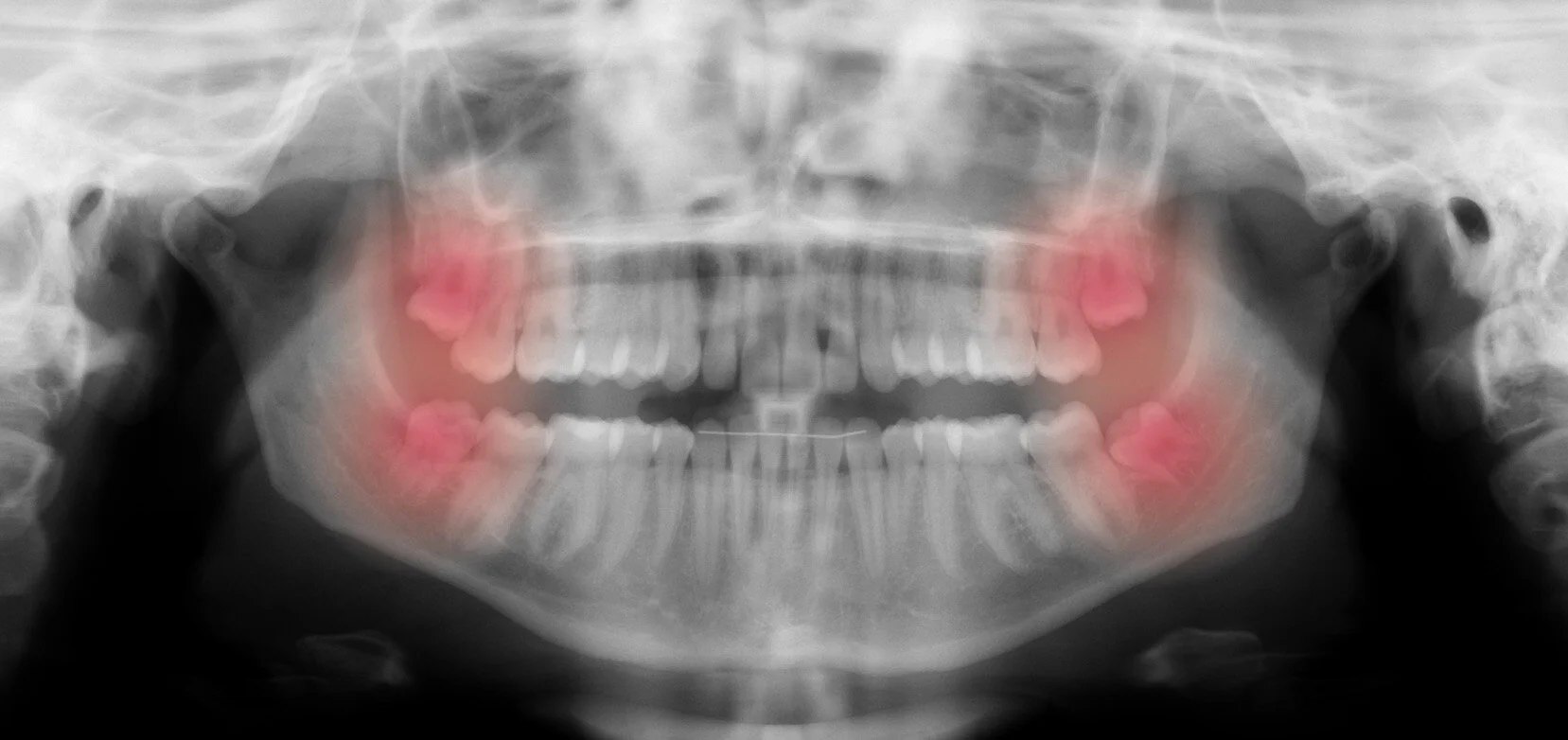
What Does Wisdom Tooth Extraction Involve?
Wisdom tooth removal is a routine procedure, but each case needs to be planned individually. To minimise trauma and protect surrounding structures, the procedure requires careful planning and the expertise of a highly skilled surgeon.
- Most sets of four wisdom teeth extractions take between 15 and 30 minutes, depending on the position of the teeth.
- Anaesthesia is given to ensure comfort.
→ When performed in Dr van Mourik’s rooms, local anaesthetic or IV sedation can be used.
→ Where appropriate, general anaesthesia is provided in hospital. - A small incision in the gum allows access to the tooth. In some cases, a small portion of bone may be removed.
- Teeth that are difficult to remove in one piece may be divided into smaller sections to assist safe removal.
- Dissolving stitches are commonly used to support healing.
- Because wisdom teeth are close to the inferior alveolar nerve and major blood vessels, imaging is often used to assist planning and reduce risk.
How long does wisdom tooth surgery take?
The time it takes to remove wisdom teeth depends on the position of the teeth, how complex the case is, and the surgeon’s experience.
If performed by an Oral and Maxillofacial Surgeon, all four wisdom teeth are usually removed within 20–30 minutes.
If performed by practitioner without Oral and Maxillofacial training, it can take around 30 minutes per tooth.
Seeing a specialist can help reduce surgical trauma, shorten the procedure time, and support a faster, smoother recovery.
Will I be awake during removal of my wisdom teeth?
Anesthetic options will be discussed in your initial appointment.
Due to Dr. van Mourik’s extensive experience in wisdom teeth extraction, many patients can remain awake and comfortable with local anesthesia, which completely numbs the treatment area.
For those feeling anxious, we offer sedation to help you relax during the procedure.
For more complex cases performed in a day hospital, a general anesthetic is administered by a fully qualified anesthetist. Dr van Mourik operates exclusively with Fellows of the Australian and New Zealand College of Anesthetists (FANZCA) to ensure the highest standards of safety and comfort throughout your treatment.
Recovery After Wisdom Tooth Removal Surgery
Day surgery: If you have intravenous sedation or a general anaesthetic, you will need someone to accompany you home. If the procedure is performed under local anaesthetic only, you can usually drive yourself.
Pain management: Discomfort is expected in the first few days. Most patients manage well with common pain relief such as Panadol® or Nurofen®. Applying an ice pack can also help reduce swelling.
Work or school: Plan to take around 7–10 days to rest and recover. The exact amount of time will depend on the number of teeth removed, the complexity of the surgery, and your overall health.
Stitches: Dissolving stitches are used in most cases and typically disappear within one to two weeks.
Diet: Soft foods are recommended for the first few days. By one to two weeks after surgery, most patients are back to a normal diet.
Follow-up: A review with Dr van Mourik’s nurse is arranged to check healing and provide further support if needed.
Dr van Mourik will provide detailed post-operative instructions at your consultation. Following these closely helps reduce the risk of complications and supports a safe recovery.
Cost of Wisdom Teeth Removal in Sydney
The cost of wisdom teeth removal varies depending on several factors, including:
- How many teeth need to be extracted
- Complexity of the procedure
- Position of the teeth
- Type of anaesthesia required
Whether the surgery is performed in-clinic or in hospital
Medicare provides a rebate for part of the initial consultation and may cover some hospital-related fees if your procedure is performed in an accredited facility.
If an anaesthetist is required, Medicare and your private health insurance will also contribute to their fees — although some out-of-pocket expenses will still apply.
After your consultation, you’ll receive a detailed written quote with item numbers, allowing you to check with your private health fund to confirm available rebates and out-of-pocket costs.
While price is an important consideration, it’s equally important to choose an experienced Oral & Maxillofacial Surgeon who can perform the procedure safely and provide clear guidance for your recovery.
Why Seeing a Specialist Oral and Maxillofacial Surgeon Matters
Removing wisdom teeth is more complex than other extractions because of their position at the back of the mouth and their closeness to major nerves and blood vessels.
Choosing a highly trained surgeon helps reduce the risk of complications such as:
- Excessive bleeding
- Infections such as Ludwig’s Angina
- Numbness of the lips, chin or tongue
Why choose an Oral and Maxillofacial Surgeon?
Oral and Maxillofacial Surgeons are qualified as doctors, dentists, and surgeons — giving them the highest level of training in oral surgery.
They perform wisdom teeth surgery regularly and provide care held to the highest surgical and safety standards.
The benefits of specialist care:
- Surgery performed efficiently and to the highest technical standard — most wisdom tooth procedures are completed faster and with less trauma in specialist hands
- The best chance of a smooth recovery and long-term success
- Treatment guided by the most current medical and dental knowledge
- A lower risk of complications
- Specialist medical expertise to manage complications, should they arise
Trust an Oral and Maxillofacial Surgeon for the safest and best outcomes in your wisdom tooth surgery.
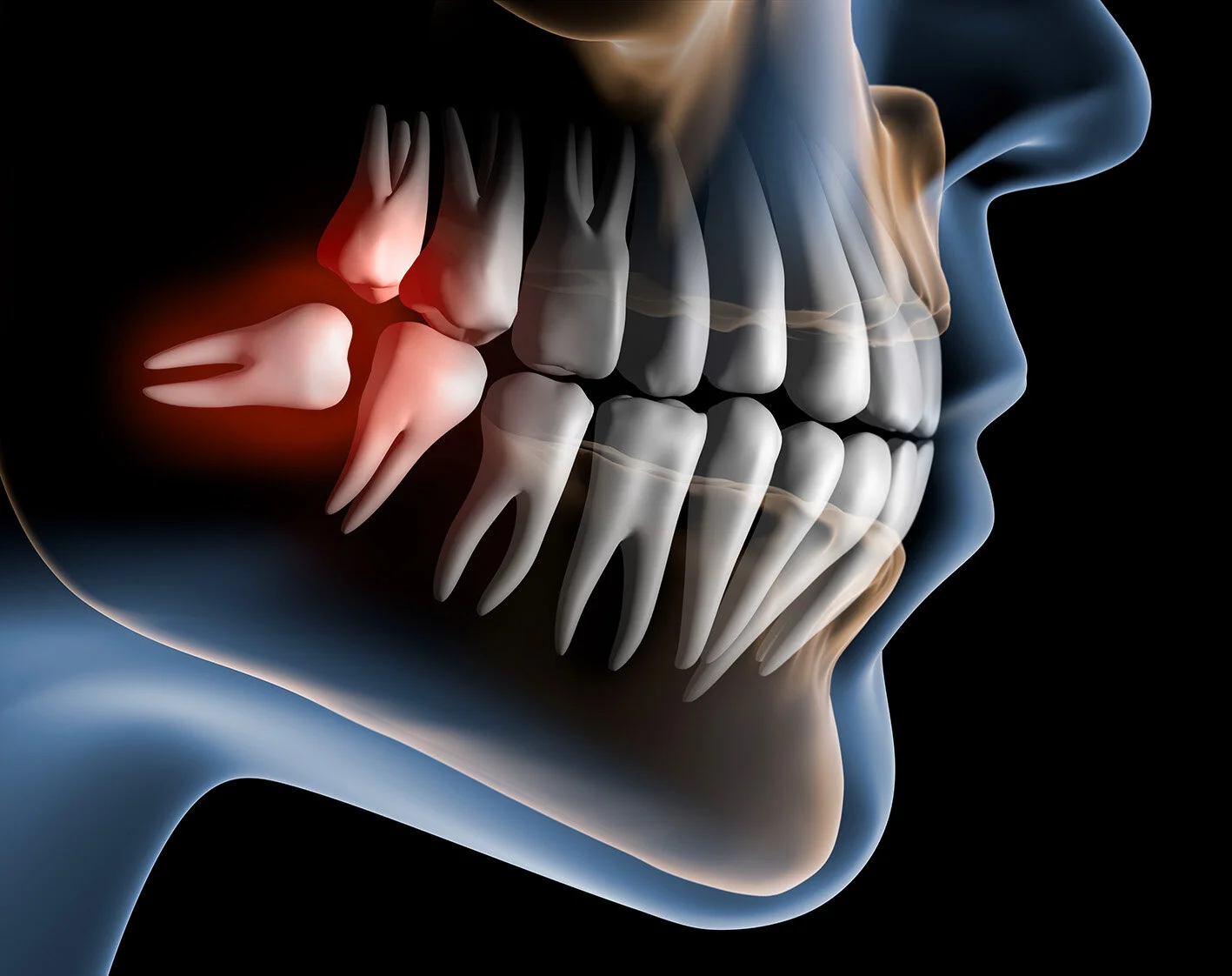
Meet Dr Kristian van Mourik
Meet Dr Kristian van Mourik
Oral and Maxillofacial Surgeon l Dual Qualified in Medicine and Dentistry
Dr Kristian van Mourik is one of the few Oral & Maxillofacial Surgeons in Australia with dual qualifications in both medicine and dentistry, along with advanced specialist surgical training.
Academic Background
- Bachelor of Biomedicine – Monash University
- Bachelor of Dentistry (Honours) – University of Sydney
- Bachelor of Medicine / Bachelor of Surgery – University of Sydney
After 14 years of university study and specialist training, Dr van Mourik has gained over a decade of private practice experience in Sydney.
Areas of Expertise
Dr van Mourik diagnoses and treats conditions of the mouth, jaws and face, offering surgical procedures that restore function, comfort and confidence.
His practice includes:
- Wisdom tooth removal
- Dental implant placement
- Corrective (orthognathic) jaw surgery
- Facial trauma treatment
Management of oral pathology
Professional Credentials
Dr van Mourik is registered with both the Medical Board of Australia and the Dental Board of Australia as a Specialist Oral & Maxillofacial Surgeon.
He has trained and worked at leading hospitals including Royal North Shore Sydney and Royal Adelaide Hospital , one of two internationally recognised Craniofacial Centres of Excellence.
Commitment to Care
Dr van Mourik is dedicated to providing:
- Clear, honest communication
- Excellent surgical outcomes
Comprehensive, compassionate care throughout every stage of treatment
Wisdom Tooth Removal FAQs Sydney
Common questions from teenagers, parents, and adults planning wisdom tooth extraction
Do I really need my wisdom teeth removed?
Your wisdom teeth, also called your third molars will not need to be taken out if they are:
- Healthy
- Fully come into your mouth
- In the right place and biting properly
- Easy to clean
You will need your wisdom teeth removed if there is no room for them to grow into your mouth and cause problems such as pain and pressure, infection, decay, crowding, discomfort such as ulcers as outlined in the ‘Signs and problems caused by impacted wisdom teeth.’
Your surgeon will take the time to discuss your wisdom teeth removal in Sydney options and recommend the approach that keeps you as comfortable as possible.
When should wisdom teeth be removed?
Wisdom teeth may need removal if they are impacted, infected, causing crowding, or damaging adjacent teeth. Your dentist will recommend removal based on X-rays and symptoms.
Your surgeon will take the time to discuss your wisdom teeth removal in Sydney options and recommend the approach that keeps you as comfortable as possible.
Do all teenagers need their wisdom teeth removed?
Wisdom teeth removal for teenagers is often recommended when there isn’t enough room for the teeth to grow in properly. You may need your wisdom teeth removed if they cause problems such as pain, pressure, infection, decay, crowding, or irritation like mouth ulcers, as outlined in our Signs and Problems Caused by Impacted Wisdom Teeth section.
Having wisdom tooth removal in Sydney at a younger age is usually easier, as the roots aren’t fully formed and the surrounding bone is softer. This allows for quicker healing and less discomfort after surgery.
Do all young adults get their wisdom teeth removed?
Young adults may need your wisdom teeth removal if there isn’t enough space for them to grow properly, which can lead to issues like pain, pressure, infection, decay, crowding, or irritation such as mouth ulcers, as described in our Signs and Problems Caused by Impacted Wisdom Teeth section.
When you’re young, your tooth roots aren’t fully formed and the surrounding bone is softer. This means you can expect faster healing and less postoperative discomfort.
During your consultation, your surgeon will talk you through your wisdom tooth removal Sydney options and guide you towards the approach that makes the process as easy as possible.
Is it common for older adults to need their wisdom teeth removed?
Some people don’t experience issues with their wisdom teeth until their 30s or 40s, while others may have delayed the treatment they were recommended in their 20s. Removal is still possible later in life, but recovery can take a little longer because the roots are fully formed and the bone heals more slowly.
If your wisdom teeth are causing symptoms, like those described in our Signs and Problems Caused by Impacted Wisdom Teeth section, it’s best not to delay your wisdom tooth removal. These issues often come back, and the procedure can become more complex with age.
Your surgeon will explain your wisdom tooth removal Sydney options and help you choose the approach that ensures a safe procedure and an easier recovery.
Do I need all four wisdom teeth removed?
Not always. If only one or two wisdom teeth are problematic, only those may need removal. Dr van Mourik, providing the best wisdom tooth removal Sydney, will advise based on clinical findings and radiographs.
What are my options for wisdom tooth removal?
Wisdom teeth can be removed in a few different ways. Fully erupted teeth, that is teeth which have come through the gum are usually taken out with by a simple extraction in your surgeon’s rooms under local anaesthetic.
Whereas impacted teeth, that is teeth which are stuck under the gum or partly through the gum may, require a surgical extraction. This can be done in your surgeon’s rooms but is generally performed in a hospital under IV sedation or general anaesthesia.
At your consultation, your surgeon will take you through the available wisdom tooth removal Sydney options and recommend the treatment best suited for a smooth surgery and healing process.
Can I be put to sleep during wisdom tooth removal?
We offer several options to make your surgery as relaxed and comfortable as possible. One of these is general anaesthesia, which involves a board-certified medical anaesthetist carefully putting you to sleep. Unlike some “seditionists” who may not have full medical training, Dr van Mourik works exclusively with anaesthetics who are Fellows of Australian and New Zealand College of Anaesthetics to ensure the highest level of safety for your procedure.
For your wisdom tooth removal in Sydney, you can expect the pinnacle of surgical and anaesthetic expertise for comfort the safest experience with predictable outcomes.
How much does wisdom tooth removal cost in Sydney?
Wisdom tooth removal cost in Sydney varies depending on the degree of difficulty and the type of impaction. As this is a routine procedure for Dr van Mourik, who is highly experienced the most complex cases, you can be confident you’ll receive expert care at an affordable price.
If surgery is recommended, you will be provided with a written itemised quote that can be submitted to your private health fund to check available rebates.
For procedures requiring a general anaesthetic, an anaesthetist will be involved. Their details and fee schedule will be provided separately. Please note that Medicare and private health insurance usually cover a portion of the anaesthetist’s fee, but not the full cost of the surgery.
We offer flexible finance options to make it easier to access the highest standard of care for your wisdom tooth removal Sydney, while still staying within your budget.
Does Medicare pay for wisdom tooth removal?
Medicare provides a rebate for part of the initial consultation but does not provide a rebate for wisdom tooth extraction.
For procedures requiring a general anaesthetic, Medicare and private health insurance usually cover a portion of the anaesthetist’s fee.
During your appointment, we’ll discuss your wisdom teeth removal Sydney finance options and help you find a plan that best fits your budget.
How long will I need to be on medication after wisdom tooth removal?
For most patients, 3 to 5 days of paracetamol and ibuprofen are adequate. Take as prescribed by Dr van Mourik, even if you are not experiencing any symptoms of pain or bleeding, it is a must to consume your medicines prescribed by your dentist specialised in wisdom teeth removal Sydney for the full duration.
How long does it take to heal after wisdom tooth removal surgery
Recovery time varies depending on the complexity of the procedure and each individual patient. Most people are back to normal activities within 5-10 days.
With Dr van Mourik’s specialist training and expertise in oral surgery, you can feel confident that your wisdom teeth removal in Sydney will provide the smoothest possible recovery.
Do I need time off work or school after wisdom tooth extraction?
Most people need a few days from regular activities. Teenagers often schedule surgery during school holidays or before a weekend, while university students and young professionals choose quieter times in their schedule to allow recovery. The amount of time required depends on the complexity of surgery and individual healing.
When you visit us for a consultation, we’ll discuss your expert wisdom tooth removal Sydney options and guide you toward the choice that offers the best outcome and recovery.
What precautions should I take after wisdom tooth removal?
On the first day, consume cold drinks and avoid very hot food or beverages while you are still numb to prevent accidental burns. Stick to soft foods for a couple of days to reduce the chance of food getting stuck and avoid disturbing the area with your tongue or fingers.
Use an ice pack to ease discomfort after 2 days switch to a hot pack to aid any swelling. Have gauze on hand to assist with any bleeding.
Rinse regularly with a saline monojet for one week and begin gently brushing the area with a soft toothbrush from day two after surgery.
Take all medications exactly as prescribed by Dr van Mourik. Be mindful of practitioners who prescribe antibiotics when there are no signs of active infection. The careful use of antibiotics is important to protect your health and reduce unnecessary risks.
Your complimentary follow-up with your Oral and Maxillofacial Surgeon, specialised in wisdom teeth removal Sydney, ensures you are healing well and on the best path to recovery.
What foods can I eat after wisdom teeth removal?
Immediately after extraction, you should only consume cool, soft foods to avoid accidental burning. Around three hours after your operation, once the anaesthesia has worn off, you can begin eating warm soft foods. For the first 2–3 days, stick to a soft foods with smoothie-like consistency. This helps prevent irritation to the wound and reduces the chance of food particles becoming trapped and causes infection.
Recommended foods include:
- Mashed potatoes
- Fruit smoothies
- Ice cream
- Oatmeal
- Smooth soups
- Scrambled eggs
Your complimentary follow-up with your Oral and Maxillofacial Surgeon, specialised in expert wisdom teeth removal Sydney, will review your diet and oral hygiene to ensure optimal healing.
What is a dry socket?
A dry socket occurs when the blood clot becomes unstable and dislodges from the wound causing lack of blood supply to the area. This is extremely painful and is not resolved by medication. If you have a dry socket, we will place medication inside the wound that promotes healing. In some cases, continuing treatment may be required.
Your review appointment with Dr van Mourik, the expert in the best wisdom tooth removal Sydney, will cover steps to help you avoid dry socket and ensure optimal healing.
Areas We Service for Wisdom Teeth Extraction
Wisdom tooth removal available across Sydney’s Eastern Suburbs and North Shore.
- Bondi
- Bronte
- Clovelly
- Coogee
- Randwick
- Paddington
- Woollahra
- Double Bay
- Bellevue Hill
- Tamarama
- Waverley
- Surrounding Eastern Suburbs
- Roseville
- Chatswood
- Killara
- Gordon
- Pymble
- Turramurra
- St Ives
- Wahroonga
- Hornsby
- Willoughby
- Castle Cove
- Other North Shore suburbs
Our Sydney Clinics
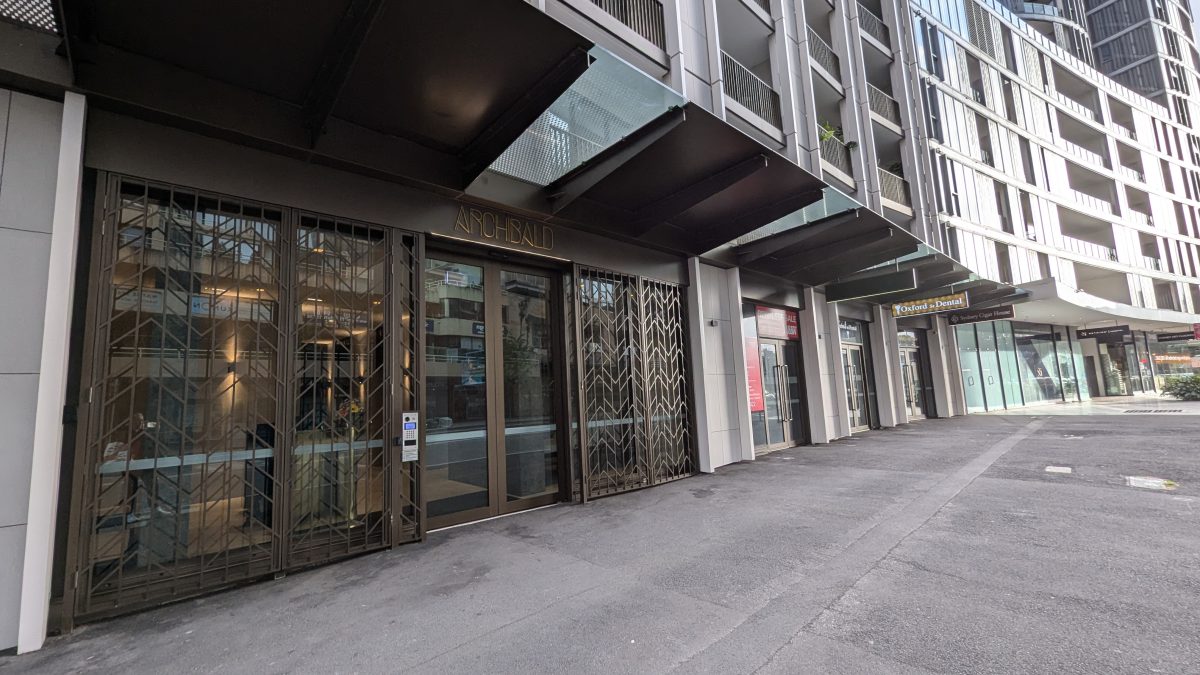
Bondi Junction
Located in the heart of the Eastern Suburbs, our Bondi Junction clinic is easily accessible by train, bus, and nearby parking.
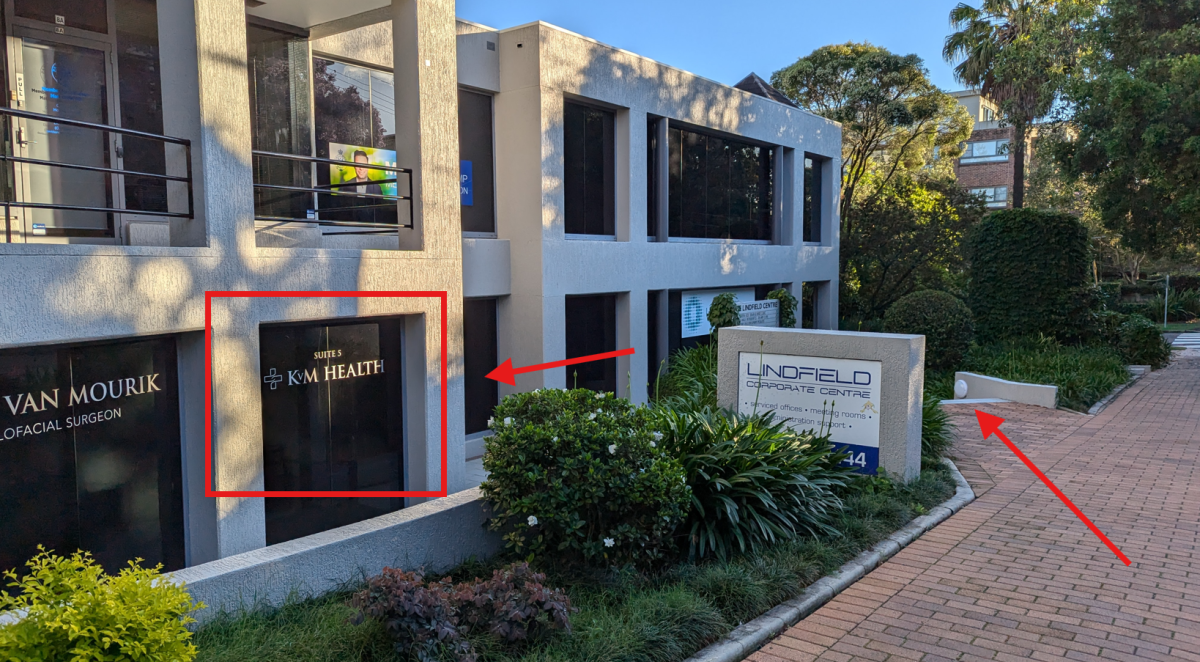
Lindfield
Conveniently positioned on the North Shore, our Lindfield clinic is close to public transport and offers parking options nearby.
